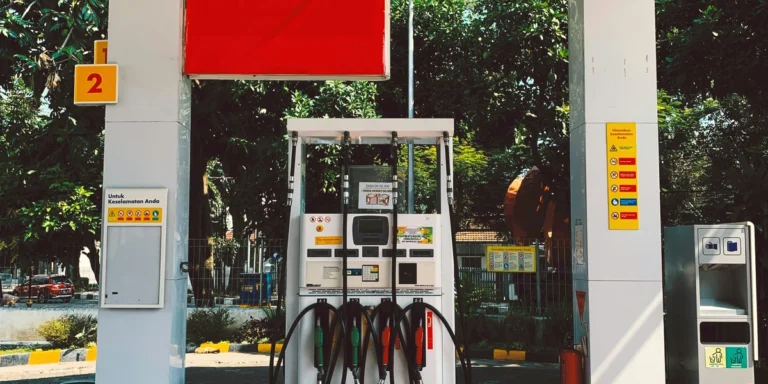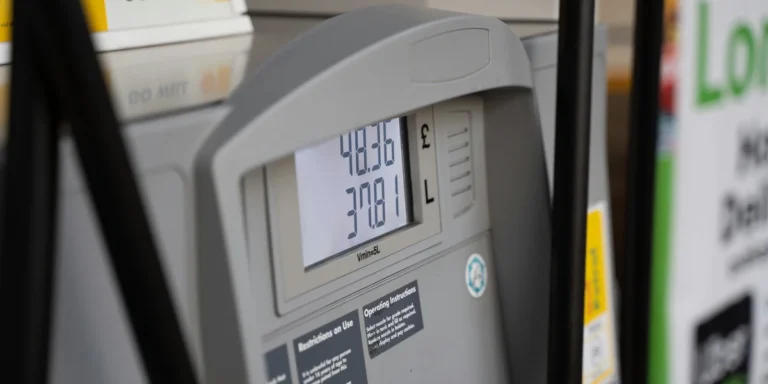8 Compelling Reasons to Use E85 Flex Fuel in Your Vehicle
If you own a flex fuel vehicle, you have a choice every time you fill up: regular gasoline or E85. While many FFV owners default to regular gas out of habit, there are numerous compelling reasons to consider E85. From environmental benefits to performance advantages, E85 offers value that extends far beyond the pump price. Let’s explore why more and more drivers are choosing E85 flex fuel.
1. Significantly Lower Carbon Footprint
The most important reason many drivers choose E85 is its environmental benefit. E85 is dramatically better for the planet than conventional gasoline.
Reducing Greenhouse Gas Emissions
Research has confirmed that E85 has a substantially smaller carbon footprint than regular gasoline. The carbon footprint of E85 is 53.3 grams of carbon dioxide-equivalent greenhouse gases per megajoule of energy—that’s 46% lower than the 98.5 g/MJ produced by regular gasoline.
This reduction comes from the entire lifecycle of the fuel. While burning any carbon-based fuel produces CO2, the ethanol in E85 comes from plants (primarily corn) that absorbed CO2 from the atmosphere as they grew. This creates a more closed carbon cycle compared to petroleum, which releases carbon that was locked underground for millions of years.
Studies by the U.S. Department of Energy’s Argonne National Laboratory have confirmed that manufacturing corn ethanol produces significantly fewer greenhouse gases than producing the same amount of gasoline, with emissions decreasing as cultivation methods continue to improve.
Cleaner-Burning Fuel
E85 burns cleaner than regular gasoline, producing fewer harmful emissions:
- **Reduced carbon monoxide**: Lower CO emissions mean cleaner air
- **Fewer hydrocarbons**: Less smog-forming pollutants
- **Reduced benzene**: Lower emissions of this known carcinogen
- **Fewer fine particulates**: Less lung-irritating particles in exhaust
E85 doesn’t contain aromatic hydrocarbons (PAHs), which are toxic compounds that manufacturers add to gasoline to increase octane rating. Since E85 already has a high octane rating naturally, these harmful aromatics aren’t needed.
Less Volatile, Fewer Evaporative Emissions
E85 is less volatile than gasoline, resulting in fewer evaporative emissions. This means less fuel vapor escaping into the atmosphere when you’re filling up or when your car is parked.
2. Enhanced Engine Performance and Power
Contrary to what some believe, E85 can actually improve your vehicle’s performance—especially in flex fuel vehicles optimized for it.
Higher Octane Rating Means More Power
E85 has an octane rating of 100-105, significantly higher than regular gasoline’s 87 or even premium gasoline’s 91-93. This higher octane rating provides several performance advantages:
Increased horsepower and torque: Ethanol has a higher oxygen content, which helps engines burn fuel more efficiently. Many flex fuel vehicles experience a 5-15% increase in horsepower when running on E85.
Better resistance to engine knock: The higher octane allows for more aggressive engine tuning without the risk of damaging pre-ignition or detonation.
More spark advance: Higher octane fuel allows the engine to run more advanced spark timing, which extracts more power from each combustion cycle.
Cooler Combustion Temperatures
Ethanol requires lower combustion temperatures than gasoline and creates a thermodynamic cooling effect. This cooler burning means:
- Less heat buildup in the engine
- Reduced thermal stress on engine components
- Better performance under demanding conditions
- Potential for more aggressive tuning without overheating concerns
For turbocharged and supercharged vehicles, E85’s cooling properties are especially beneficial, allowing for higher boost pressures and more power without risking engine damage.
Ideal for Performance Applications
Many performance enthusiasts view E85 as “cheap race fuel.” With octane ratings comparable to expensive racing fuels that cost $10+ per gallon, E85 offers similar performance benefits at a fraction of the cost. This makes it popular for:
- Track day vehicles
- Modified cars with turbochargers or superchargers
- High-compression engine builds
- Drag racing and motorsports applications
3. Engine Cleaning Properties
One of E85’s most underappreciated benefits is its ability to clean your engine while you drive.
Natural Solvent Action
Ethanol is an excellent cleaning agent. As E85 flows through your fuel system, it actively cleans:
- Fuel injectors
- Fuel lines
- Intake valves
- Combustion chambers
- Exhaust system components
The ethanol in E85 clears carbon deposits from these areas, helping your engine maintain optimal performance. Some mechanics even recommend running one or two tanks of E85 through an engine as an alternative to using chemical engine cleaners.
Prevention of Carbon Buildup
Because ethanol burns cleaner than gasoline, regular E85 use prevents the formation of carbon deposits in the first place. Less carbon buildup means:
- Better fuel injection efficiency
- Cleaner intake valves
- Reduced risk of carbon fouling
- Maintained engine power over time
- Lower long-term maintenance costs
Improved Long-Term Engine Health
The combination of cleaner burning and active cleaning means that engines regularly running E85 often show less wear and fewer deposits than gasoline-only engines, potentially extending engine life and maintaining performance.
4. Cost Savings (When Priced Right)
While fuel economy is lower on E85, the reduced price per gallon can still result in significant savings.
Lower Price at the Pump
E85 typically costs $0.50-$0.80 less per gallon than regular gasoline, and in Midwest states, the difference can be $1.00 or more per gallon. Current national average prices show E85 around $0.60 less per gallon than regular unleaded.
Real-World Savings Examples
Even with E85’s 15-27% reduction in fuel economy, the price difference often results in lower cost per mile. For high-mileage drivers, annual savings can be substantial:
- Driving 15,000 miles annually with a significant price advantage can save $200-$500 per year
- In regions with $1+ per gallon price difference, savings can exceed $800-$1,200 annually
- The savings are even more dramatic for vehicles that would otherwise require premium gasoline
Additional Savings for Premium Gas Users
If your vehicle requires premium gasoline, E85 becomes even more economical. Premium gas often costs $0.50-$1.00 more per gallon than regular, making E85’s price advantage over premium fuel even greater.
5. Energy Independence and Domestic Production
Using E85 directly supports American energy independence and the domestic economy.
Made in America
As of 2021, 27 different states produce ethanol, with production concentrated in corn-growing regions. Unlike petroleum, which often must be imported from politically unstable regions, ethanol is produced domestically from renewable crops grown by American farmers.
Reduced Dependence on Foreign Oil
Using E85 decreases reliance on imported petroleum. Domestically produced ethanol makes E85 and its users less dependent on foreign oil, providing both geopolitical advantages and reduced transport costs.
Economic Impact
The ethanol industry creates significant economic benefits:
- Over 68,000 jobs in the ethanol industry
- $43 billion contribution to America’s GDP
- Support for American agriculture and rural communities
- Revenue that stays within the U.S. economy
By choosing E85, you’re directly supporting American farmers, rural communities, and domestic job creation.
6. Renewable and Sustainable Fuel Source
Unlike petroleum-based gasoline, E85 is made from renewable resources.
Plant-Based Production
Ethanol is produced through the fermentation and distillation of organic materials:
- Corn (primary source in the U.S.)
- Sugarcane
- Wheat and other grains
- Agricultural waste and cellulose
- Other biomass materials
These crops are grown year after year, making ethanol a renewable resource rather than a finite fossil fuel.
Circular Economy Benefits
The production of ethanol creates useful byproducts:
- Distillers’ grains serve as high-protein cattle feed
- Carbon dioxide from fermentation can be captured for industrial use
- Agricultural practices continue to improve efficiency and reduce environmental impact
Sustainable Agriculture
Modern ethanol production has become increasingly efficient, with carbon intensity of corn production decreasing as cultivation methods improve. The renewable nature of ethanol production supports a circular economy model.
7. Fuel Flexibility and Convenience
One major advantage of E85 and flex fuel vehicles is versatility.
Use Any Blend
Flex fuel vehicles can run on:
- Pure gasoline (E0)
- E10 (regular pump gas with 10% ethanol)
- E15 (15% ethanol blend)
- E85 (51-83% ethanol)
- Any blend or mixture in between
You can even mix different fuels in the same tank—the vehicle’s sensors automatically detect the ethanol content and adjust engine parameters accordingly.
Never Stranded
This flexibility means you’re never stuck looking for E85. If an E85 station isn’t convenient, simply fill up with regular gasoline. This gives you the best of both worlds: environmental benefits and performance when E85 is available, with no concerns when it’s not.
Optimize Based on Your Needs
You can choose your fuel based on:
- **Price**: Use E85 when the price advantage is significant
- **Availability**: Fill with whatever is convenient
- **Performance**: Run E85 for track days or spirited driving
- **Weather**: Use more gasoline blend in extreme cold if desired
8. Tax Incentives and Credits (In Some Jurisdictions)
While federal incentives have changed over the years, some states and local governments still offer benefits for flex fuel vehicle owners or E85 users. These can include:
- State tax credits for FFV purchases
- Reduced registration fees
- Access to HOV lanes in some areas
- Fleet incentives for businesses
Check with your state’s department of motor vehicles or energy office for current incentives in your area.
Additional Considerations
Meeting Future Emissions Standards
Research shows that E85 not only meets current emissions standards but is positioned to meet even stricter future requirements. Studies indicate that E85 will meet the Euro 7 vehicle emissions standard applicable from late 2026, demonstrating its viability as a long-term clean fuel solution.
Supporting Agricultural Communities
By choosing E85, you directly support rural America and agricultural communities. The demand for ethanol creates stable markets for corn and other crops, providing economic stability for farming regions.
Contribution to Climate Goals
As governments and corporations set ambitious carbon reduction targets, E85 offers a practical way for drivers to reduce their carbon footprint today, using vehicles and infrastructure that already exist.
The Bottom Line: Is E85 Right for You?
E85 offers compelling benefits for flex fuel vehicle owners, particularly those who:
- **Prioritize environmental responsibility**: Significant reductions in GHG emissions and cleaner air
- **Want better performance**: Higher octane, more power, cooler running temperatures
- **Drive high annual mileage**: Greater savings over time with lower fuel costs
- **Support American energy independence**: Domestic production and job creation
- **Live near E85 stations**: Easy access to fuel
- **Appreciate flexibility**: Freedom to choose fuel based on price and availability
While E85 isn’t perfect—with lower fuel economy and limited availability in some regions—the combination of environmental benefits, performance advantages, cost savings, and support for domestic production makes it an attractive choice for many FFV owners.
If you own a flex fuel vehicle and haven’t tried E85, consider giving it a test. Monitor your actual costs per mile, enjoy the performance benefits, and feel good knowing you’re supporting cleaner air, American agriculture, and domestic energy independence. Find E85 stations near you at E85GasFinder.com and experience the benefits of this renewable fuel alternative.
The choice is yours at every fill-up—and that flexibility, combined with these eight compelling reasons, makes E85 worth serious consideration for anyone driving a flex fuel vehicle.







